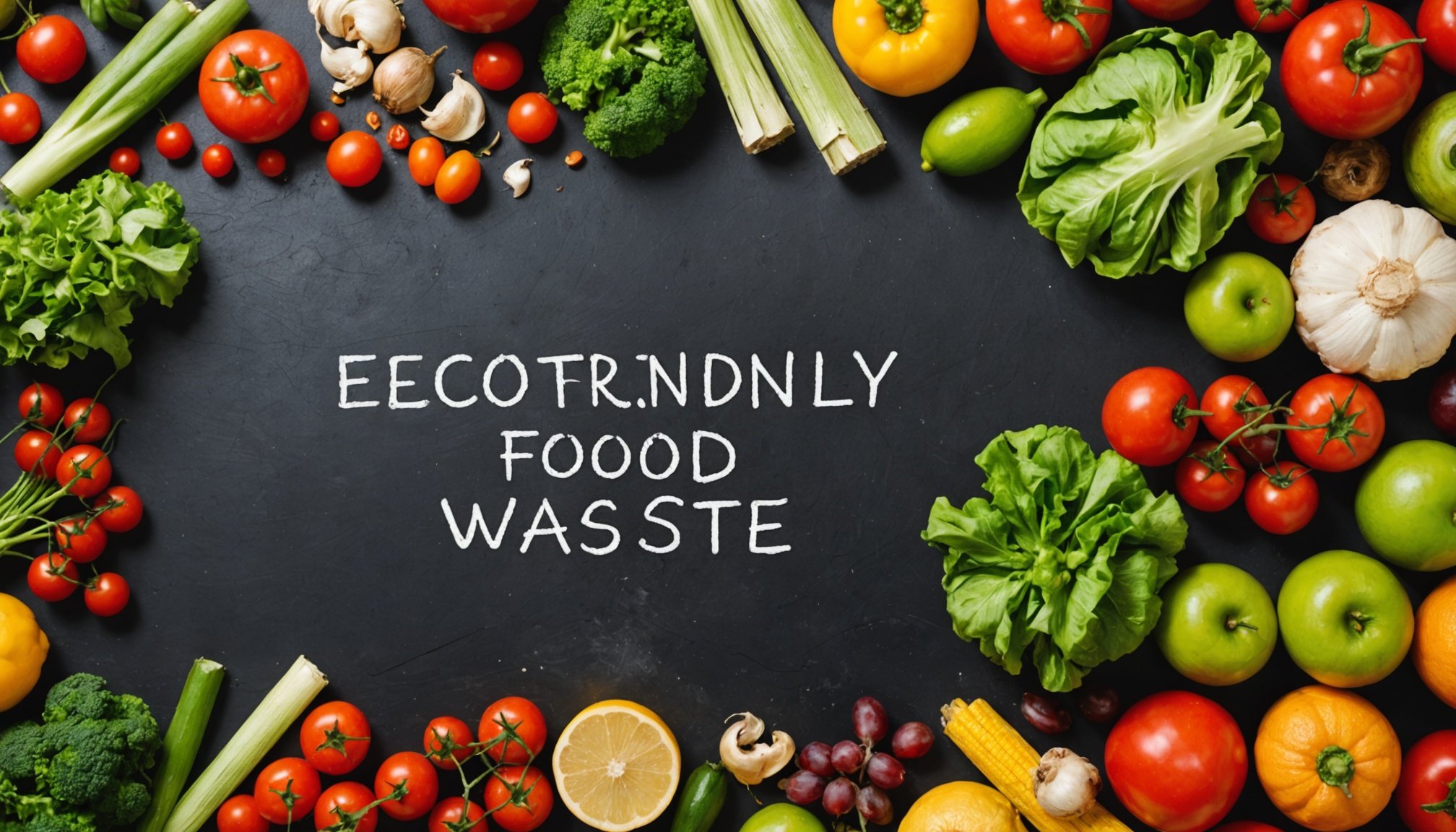Understanding Food Waste in the UK
The food waste statistics in the UK paint a troubling picture; annually, UK households generate millions of tonnes of waste. This accounts for a significant environmental impact as uneaten food decomposes in landfills, releasing methane, a potent greenhouse gas. Addressing UK kitchen waste is crucial not only for reducing environmental harm, but also for conserving resources and promoting sustainable living.
Environmental impacts of food waste extend beyond methane emissions. Wasted food also means squandering resources such as water, energy, and labour involved in producing, processing, and transporting food. Not to mention, it can lead to unnecessary agricultural expansion.
In the same genre : The Definitive UK Bread Maker Selection: Top Picks for Your Kitchen Counter
Combatting food waste begins at home, highlighting the importance of awareness and action in our kitchens. Simple adjustments, such as mindful purchasing, better storage, and utilising leftovers, can reduce individual contributions to the problem. By understanding the breadth of food waste statistics and its environmental repercussions, UK residents are empowered to make changes that collectively hold substantial benefits for the planet.
Sustainable Materials for Kitchen Renovation
Modern kitchen renovation goes beyond aesthetics, with a strong emphasis on using eco-friendly materials. A variety of sustainable kitchen design options are available, including countertops, cabinets, and flooring made from reclaimed or recycled components. These green alternatives not only help reduce environmental impact but also create a unique look with character and history.
Also to read : Unlock Fantastic UK Deals: Ultimate Guide to Premium Commercial Kitchen Equipment
When selecting materials, it’s essential to consider certifications that guarantee the eco-friendliness of the product. Look for labels such as the Forest Stewardship Council (FSC) for wood products and Cradle to Cradle for various household items. These certifications ensure that the materials used have been sourced and produced with minimal adverse effects on the environment.
Using materials like reclaimed wood for countertops or bamboo for cabinets not only supports sustainable practices but often results in cost savings by avoiding the use of virgin resources. Choosing eco-friendly materials for your kitchen renovation can significantly lower your ecological footprint, offering tangible benefits in terms of energy efficiency and sustainability. Prioritizing these sustainable choices ensures that your kitchen not only meets but exceeds the standards of a modern, sustainable kitchen design.
Efficient Storage Solutions
To notably reduce food waste, investing in kitchen organization is vital. Start by maximizing space with innovative storage solutions. For instance, utilise stackable bins and airtight containers that fit neatly in your pantry and fridge, preserving freshness and extending the shelf life of your groceries.
Utilising smart storage techniques further mitigates spoilage. Label containers and sections within your pantry to quickly identify what’s available, which ensures older food items are used first. This not only helps avoid duplicate purchases but also maintains a household inventory, resulting in less waste.
Sorrey veggie and fruit crispers into sections, creating a system where you can easily find foods that need to be consumed soon. Keep a running list on your fridge to track what’s expiring shortly. This allows for a proactive approach in meal planning, reducing the likelihood of tossing expired products.
Additionally, using clear containers provides a visual cue of what’s inside, aiding in the efficient management of food. Implementing these kitchen organization strategies ensures better utilization of space while playing a crucial role in reducing household food waste effectively. Such systematic processes can lead to significant reductions in kitchen waste.
Meal Planning Strategies
Meal planning is an essential component for those aiming to reduce food waste. By organising meals in advance, households can significantly cut down on unnecessary purchases and use up perishable items more efficiently. A well-thought-out meal plan incorporates flexibility, allowing adjustments for leftovers and spontaneous meals. Start by determining meals for the week, considering what ingredients you already have to make a cohesive shopping list.
Incorporating leftovers into new meals is a savvy strategy for reducing waste. Transform dinner remnants into next-day lunches or mix them into soups and salads. This approach not only saves time and resources but also inspires culinary creativity. For instance, a roast from Sunday can become a hearty sandwich filling or be added to a stir-fry later in the week.
Furthermore, efficient cooking involves batch cooking items like grains or legumes, which can be used in various dishes throughout the week. Implementing these meal prep techniques ensures you maximise the use of food on hand, aligning with a sustainable lifestyle. By consistently applying these methods, the challenge of reducing kitchen waste turns into a gratifying endeavour with tangible environment benefits.
Composting and Waste Disposal
Implementing composting as a part of kitchen waste management is a valuable step towards eco-friendly disposal. It turns organic waste into nutrient-rich compost, reducing landfill contributions and providing natural fertiliser for gardens. Start by designating a spot in your kitchen for a compost bin where you can collect food scraps like fruit peels, coffee grounds, and vegetable trimmings.
Setting up a kitchen composting system is straightforward. Opt for a ventilated bin to prevent odours and maintain airflow. Include a balance of green materials (kitchen scraps) and brown materials (like dried leaves or paper) for effective decomposition. Regularly turning the compost aids aeration and speeds decomposition.
For non-compostable materials, consider responsible alternatives such as recycling and proper waste segregation. Many local councils offer guidance on sorting waste, ensuring minimal environmental harm. Advanced waste disposal methods, like anaerobic digestion, further convert waste into renewable energy.
These practices underline the benefits of composting by promoting sustainability and encouraging households to reduce waste. By adopting these systems, you’re not just managing kitchen waste efficiently but also contributing to a healthier planet.
Food Preservation Techniques
Preservation methods like canning, freezing, and drying play a crucial role in extending food shelf life and reducing waste. By implementing food storage strategies, households can maintain freshness and prevent spoilage. This not only benefits the environment but also supports household economies. Canning involves sealing foods in jars after heating, preserving them for months. Properly canned items retain flavour and nutrients, providing a year-round supply of seasonal produce.
Freezing is another effective preservation method; it halts bacterial growth, keeping food safe and edible for extended periods. For best results, ensure foods are well-packaged in airtight materials. Drying, by removing moisture, extends shelf life while retaining essential nutrients. It’s especially useful for fruits and meats, making products like dried fruits and jerky.
Correct application of these techniques can greatly influence the reduction of waste. By extending shelf life, there’s less chance of discarding spoiled foods. Households are also empowered to make cost-effective decisions, purchasing larger quantities in season and preserving for future use. Implementing these methods at home not only increases sustainability but also provides access to a more diverse and readily available food supply throughout the year.
Case Studies and Success Stories
Exploring kitchen renovation case studies unveils intriguing insights into sustainable transformations within various households. These case studies demonstrate how thoughtful designs and decisions reduce waste effectively while maintaining aesthetic appeal. For instance, numerous renovations have successfully integrated eco-friendly materials like reclaimed wood and recycled glass into countertops and cabinets. Such choices not only enhance the visual charm of the kitchen but also significantly reduce the renovation’s environmental footprint.
Inspiring community initiatives offer further inspiration, emphasizing collaboration in combating food waste. Projects often involve local groups pooling resources to facilitate knowledge sharing and collective action. These initiatives may focus on educating residents about meal planning or composting techniques, fostering widespread participation and tangible results. Community gardens are a particularly successful example where compost from kitchen waste is utilized, demonstrating a closed-loop system that benefits all involved.
The commendable outcomes of these eco-friendly kitchen projects can be observed in reduced kitchen waste and heightened community awareness. These initiatives serve as a testament to the transformative potential of sustainable practices, inspiring others to follow suit. By engaging with both individual and communal efforts, measurable impacts on food waste reduction become an attainable goal.

